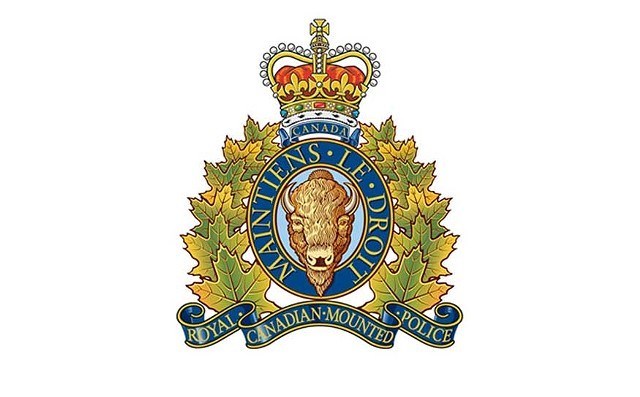For a long time, Cst. Bernie Edmunds knew he wanted to help people—he just didn't know in what capacity. Over the years, that innate desire manifested in different ways: Born in war-torn Namibia, Edmunds later spent time working with African refugees. He has donated his time to a number of causes, and today sits on the board of Communities That Care Whistler. An alumnus of Canadian basketball powerhouse Carleton University, he has coached the sport for years—something he still does at Whistler Secondary School (WSS).
Quiet and unassuming, Edmunds speaks in a thoughtful, deliberate manner, wheels constantly turning. By his own admission, he's not "a very showy person," and doesn't like discussing his contributions to the community, letting his actions speak louder than his words.
Chances are Edmunds doesn't quite fit the traditional image of a police officer you have in mind. "I try to challenge people's perceptions of cops every day, whenever I interact with the public," he said.
In the latest instalment of Pique's series profiling cops who go above and beyond the call of duty, we caught up with the 37-year-old Edmunds, who this year took over coaching duties for the WSS senior boys' basketball team after leading the junior team for several seasons.
Edmunds came to policing late in life, giving up a steady federal government job for his first general-duty posting, in Whistler, four years ago. Upon arriving, he knew he wanted to get back into coaching, and soon learned of an opening at the high school.
"When I got here, I was pleasantly surprised at just how encouraging (the RCMP) was for me to do that," he recalled. "If I couldn't schedule around my shift, they would let me go in uniform sometimes on-shift to coach. So I'd keep my radio on and make sure I could respond to emergency calls, but if not too much was going on and the other guys could handle it, then I was supported to do so, which is incredible. I've never had a job where that was the case."
Edmunds' coaching style has been heavily influenced by legendary Carleton and national team coach Dave Smart, a notoriously demanding leader who places as much emphasis on instilling good habits off the court as he does on it.
"Dave used to talk about it all the time: 'We build character.' That's what we try to do," Edmunds said. "There's a certain age when kids stop listening to their parents and listening to their teachers. But they still listen to their coaches. We work on all kinds of things."
One of the things Edmunds has worked on with his team is challenging the traditional notions of what it means to be a man. He's strict, but unafraid of telling his players how he feels. Two years ago, the coach sat on a panel discussing boys' development following a screening of the Netflix documentary, The Mask You Live In. "Team sports, particularly in the West, are hyper-masculine. Boys are only allowed to feel two feelings: joy and anger. Sadness is not a masculine feeling," he said. "So basically, this documentary takes you through the development of several men and how, by supressing it, it comes out in the darkest forms later on ... and it all stems from the fact that words matter. 'Man up.' 'Don't be a little girl.' 'Stop being a pansy.' Those kinds of things have a tremendous impact.
"I try to create an environment where they feel comfortable expressing that stuff to me, and the way I do that is by expressing that stuff, by saying things like, 'I love you guys.' That was one of the things from this documentary. I realized after watching it that some men go their whole lives without another man telling them they love them. That's a messed up thing."
Now in the third year of his contract, Edmunds is gearing up for a potential move into counterterrorism at the RCMP. Even with his involvement in the community, the constable said Whistler can be a difficult place to break into for new officers.
"A lot of people think policing in Whistler is the easiest thing to do. But it's not necessarily that way. We don't have murders every day, but I remember walking up past (a nightclub) one night—this happens regularly. This girl is falling-down drunk and I'm generally concerned for her safety. There's this group around (the nightclub) ... they started cheering, "F*ck the police!" F*ck the police!' as I'm trying to help her. They think I'm trying to arrest her. Then one of her friends intervenes, swearing at me, and I said, 'Listen, do you have a sister or a mother or a daughter? Wouldn't you want someone to assist that person? What's wrong with you?'" he remembered. "Sometimes, there can be this weird sentiment here that comes off as us versus them, and that's so sad. It breeds resentment—both ways. I wish we could all spend more energy building bridges than burning them."
Even with some of the challenges that come with policing in Whistler, Edmunds said he will look back fondly on his time here.
"I love Whistler and I have loved Whistler. Especially now. I feel like I've made significant in-roads in the community," he said. "I have amazing community partners that I will always feel close to on a personal level because I think they recognize in me what I recognize in them, that we both genuinely do what we do to make our community better ... And to the kids in the high school, I'm really going to miss them. I love those kids. To their parents, to the school administrators, it will always be a part of me. You can't put that much effort into something and not have that become part of you."




